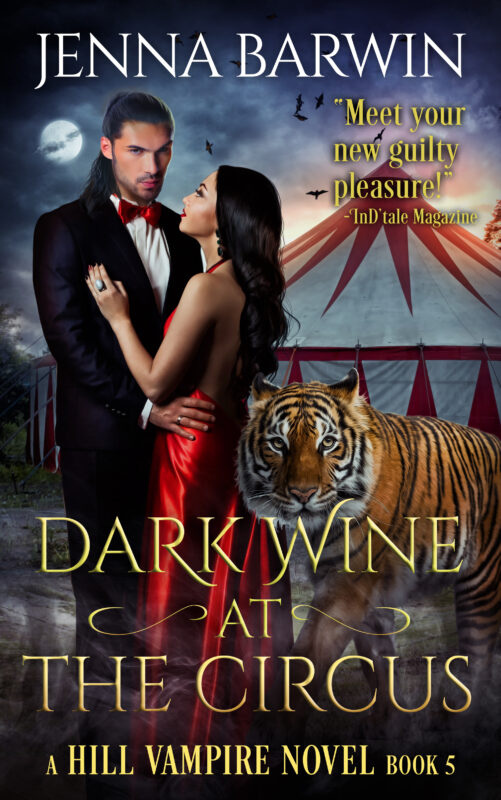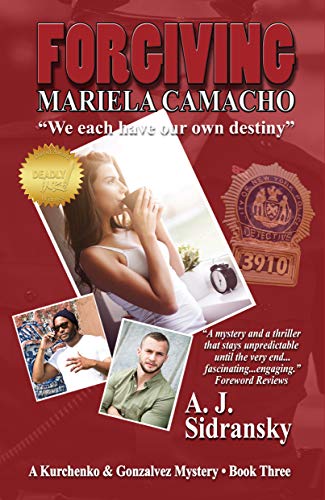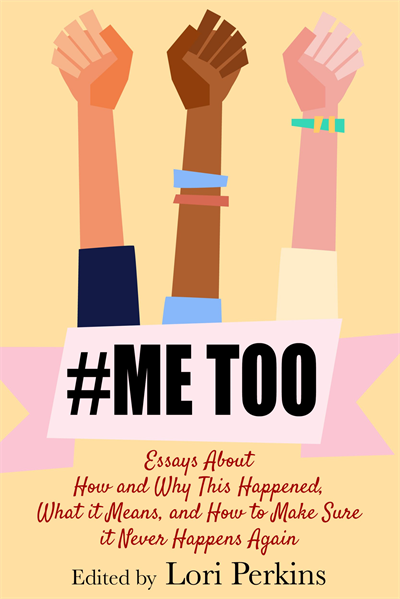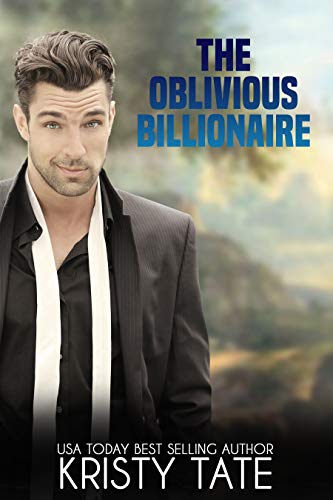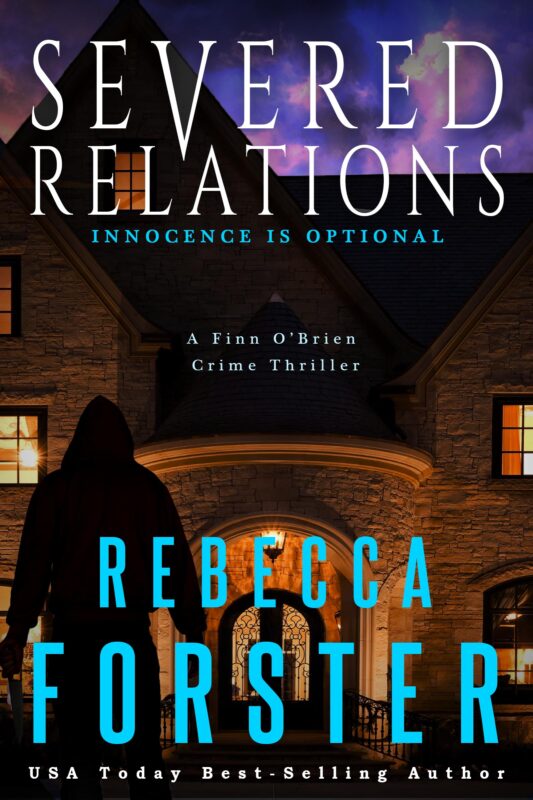ATTITUDE OF GRATITUDE: TY’s to Readers and Writers
November 15, 2021 by Rebecca Forster in category The Write Life by Rebecca Forster tagged as a writers job, author, readers, Thanksgiving I received my first fan letter 36 years ago from a lady named Bev. I wrote back a thank you note. She wrote back. I wrote back. Bev was the first, but she wasn’t the last to write to me. I have met the most wonderful, interesting, smart, and kind people all because we share a love for a good story. Some of these fan-friends even show up in my books (with their permission of course). New friendships are the priceless benefits of writing and the bottom line is that those friendships start because one person reached out to say thank you. This seems the perfect time to offer a few suggestions for readers who want to thank their favorite author for the hours of entertainment, and authors who want to send the love back.
I received my first fan letter 36 years ago from a lady named Bev. I wrote back a thank you note. She wrote back. I wrote back. Bev was the first, but she wasn’t the last to write to me. I have met the most wonderful, interesting, smart, and kind people all because we share a love for a good story. Some of these fan-friends even show up in my books (with their permission of course). New friendships are the priceless benefits of writing and the bottom line is that those friendships start because one person reached out to say thank you. This seems the perfect time to offer a few suggestions for readers who want to thank their favorite author for the hours of entertainment, and authors who want to send the love back.
READERS
A follow on Twitter or Facebook is great, but interacting with your favorite author on those platforms is truly special. One of my favorite followers is a truck driver who posts pictures from the road. I love getting a shout out while she is on her travels.
Every author has a contact form on their website. Send your favorite storyteller an email or, better yet, snail-mail. A quick note about how much you enjoyed a specific book and ‘keep writing’ encouragement is priceless.
Reviews on Amazon, Goodreads or any other review platform is the best way to show your gratitude for the months – sometimes years – an author has spent writing a book.
Finally, if the spirit moves you, share your art or passion. I have been honored to receive a crocheted blanket from a reader, another sent needles from her mother’s sewing kit because she knew I sewed and her mother had enjoyed my books. One reader – a woman in the U.S. Army – sent me a pair of combat boots!
AUTHORS
When you get a fan letter, write back. Auto responses or an assistant written messages are no-nos. It’s so easy to discover the person behind the letter, so take a little time to look at Twitter and Facebook profiles. Maybe you’ve been to her* hometown. Perhaps she just got married or has sent her kids back to school. Do her posts show pets or hobbies that you share? Personalize your letter if you can. Always let her know you are thankful that she wrote, and for the time she spent reading your work. Remember your readers are a family of fans, so showing genuine gratitude should be second nature.
Every once in a while, when the situation calls for it, I send a gift to someone special like a homebound reader, or a young writer who has asked for advice. This is usually a book, but I’ve also sent a little glass jar filled with sand from Hermosa Beach where Josie Bates plays volleyball. Of course, we can’t do this for everyone, but sometimes a special situation calls for it.
Finally, if a reader asks you to speak to a local (and I stress local)group or book club, do it. In person interaction is energizing and your fan will love you for it.
So, Happy Thanksgiving all. I appreciate everyone who has spent the time reading this post, who has ever read one of my books, the person who is thinking about reading one of my books, and all those wonderful readers who follow me on my social platforms. And now, since I’m a reader too, I think I’m going to go write a note to my favorite author…just to say thanks.
*PS Men write fan letters too, and being contacted by a fiction-reading guy is really a great feeling! And yes, click Hostile Witness. It’s free. My way of saying thank you.
OH HORRORS! Storytelling that goes bump in the night
October 15, 2021 by Rebecca Forster in category The Write Life by Rebecca Forster, Writing tagged as #Thriller, #writingtips, #writingvoice #writingtips #thrillers, horror
My job as a thriller writer is to keep the reader on the edge of her seat, but when it comes to jump-out-of-your-skin storytelling horror is the cardio workout for the imagination. The writer in me is in awe of the imaginative details; the reader (movie-goer) is in love with the unpredictability of the genre.Here are three of my favorites.
FINAL DESTINATION – MOVIE FRANCHISE
The premise is basic, the acting just decent, but the writing was so darn inventive. Just when I thought the writers couldn’t surprise me again, scenes became more elaborate, unpredictable, and downright delightfully terrifying. This is a great lesson in taking the time to kick your writing up a notch.
MISERY – STEPHEN KING
We’re all suckers for a good plot, especially when it pumps with plausibility. An obsessed fan, a writer who is her captive, and the life and death struggle between them makes this a great look at how a writer can create a nail biter when the characters are locked into a single location.
NEEDFUL THINGS – STEPHEN KING (again)
The slow burn makes the horrific climax in this book incredibly satisfying. King uses multiple characters and their motivations to keep the reader off base. This technique creates a literary funnel that feeds into the one person the reader should have been paying attention to from the beginning. Psychological horror becomes physical and the swiftness of the climax is chilling, and the reader doesn’t even know they are being led down a path until it’s too late.
So, I’ve got the pumpkin carved, the candy bowl is on the table, I’m waiting for the doorbell to ring and before those trick-or-treaters descend I’ve got just enough time to open my book and scare myself silly. What about you? What’s your favorite Halloween-horror page turner?
BACK TO SCHOOL: The Write Way to Learn your Craft
September 15, 2021 by Rebecca Forster in category The Write Life by Rebecca Forster, Writing tagged as Craft, craft class, Craft Workshops, writing I never thought I’d be a novelist, much less a USA Today and Amazon bestseller. I wish I could say that I was an overnight success, but it’s taken years to hone my skills because I am self-taught. The extent of my writing education was to crack open a bestselling novel (with a glass of wine by my side), highlight important passages and transitions, and then mimic the authors’ style. At some point, I found my own voice, and it was magical. I could have cut years off my learning curve if I had access to the online information that is available now. While I love the energy of in-person education, I found two intriguing options for writers, whether they are new or experienced. Maybe one will be right for you.
I never thought I’d be a novelist, much less a USA Today and Amazon bestseller. I wish I could say that I was an overnight success, but it’s taken years to hone my skills because I am self-taught. The extent of my writing education was to crack open a bestselling novel (with a glass of wine by my side), highlight important passages and transitions, and then mimic the authors’ style. At some point, I found my own voice, and it was magical. I could have cut years off my learning curve if I had access to the online information that is available now. While I love the energy of in-person education, I found two intriguing options for writers, whether they are new or experienced. Maybe one will be right for you.
‘Ninety-Day Novel’ walks you through finishing your first book in three months. There are weekly in person Zoom meetings, recorded lessons, and exercises landing in your mailbox to help you along. It doesn’t get more hands on than this.
‘Masterclass’ is awesome. This platform provides virtual classes taught by award-winning authors such as Margaret Atwood, Malcolm Gladwell, and James Patterson to name just a few. Masterclass will elevate your work, and as an added bonus you’ll learn how to get your finished work published.
CreativeLive is perfect for authors who are feeling pretty good about their craft but are looking for practical advice. No celebrity authors here. Rather, you’ll be learning from entrepreneurs, bloggers, and online personalities.
This September take a cue from the kids. Get back to school and learn from the people who wrote the books on writing. You won’t even need a backpack!
*These links are for information only. Masterclass is $15.00 a month billed annually. Ninety-Day Novel is donation based, with $1,000 being suggested but $500 being the least amount accepted. Creative Live is $13.00 a month.
HERDING BUTTERFLIES: DEFINING A WRITER’S WORK
August 15, 2021 by Rebecca Forster in category The Write Life by Rebecca Forster tagged as Craft, writing

“I wish I had your job. All you do is sit around and make up stories all day.”
“I’ve got a great story for you. You write it and I’ll split the royalties.”
If writers had a dollar for every time someone told them they were on easy street they would be — well—on easy street. But we know the work is hard, that dedication is a prerequisite, and thick skin is the uniform we wear everyday. So if you ever need to explain the life of a writer, here’s how you can break it down.
STEP ONE: Herd Butterflies
Of the millions of words in the world, a writer must choose 100,000, and fit them together like puzzle pieces to create a seamless story. There is no wand to wave so that they magically fall in place. Nor is there a spell to cast that will take the vague, foggy images on the periphery of writer’s consciousness, give them form and function, and create memorable characters. Likewise a plot and story can be elusive. Initially these ideas are as solid as quicksand. One wrong step and the writer sinks. If we’re not willing to do this painstaking work to corral our butterflies, sculpt our characters, and create a solid plot foundation then we are not writers.
STEP TWO: Sit
Writers sit for hours, and days, and weeks on end. Months go by and still we sit. A writer may mentally plot or test dialogue while seeing to real life, but the hard work is accomplished by putting our butts in the chair while everyone else plays. If we give into temptation and join the party, we are not writers.
STEP THREE: Sand, Paint, and Patch
When the typing is done, the editing begins. Editing is an ugly, depressing, miserable process. Shave a word here, add ten there. Delete pages, chapters, chuck the whole book and start again. A writer prints out hard copy, marks it up until the pages look bloody with edits. Then a real pro inputs the edits and starts all over again. If we aren’t our own best critic, one willing to make things right for our readers, we are not real writers.
So when someone says they fancy your job or waxes romantic about a writer’s life, smile. Admit that writing is a wonderful profession. Insist that you would never dream of taking their amazing idea even though you’re tempted. Assure them that they deserve the literary glory. Do offer to look at their manuscript when it’s finished. While you’re waiting, you can start herding butterflies for your next blockbuster.
1 0 Read moreThe Only Number That Counts
July 15, 2021 by Rebecca Forster in category The Write Life by Rebecca Forster tagged as #bookreview, #writing voice, Book Reviews. Rebecca Forster I just finished reading an older, but wildly popular, novel. This was an Oprah pick. It took the reading world by storm years ago. Sadly, the more I write the less I read for pleasure, so I am late to the game. When my husband surprised me with a birthday trip to Los Cabos this was the book I brought with me.
I just finished reading an older, but wildly popular, novel. This was an Oprah pick. It took the reading world by storm years ago. Sadly, the more I write the less I read for pleasure, so I am late to the game. When my husband surprised me with a birthday trip to Los Cabos this was the book I brought with me.
I was entranced — until I wasn’t. The first half was stunning, brilliant, a classic-in-the-making; the second half was annoying, disheartening, and predictable. The reasons for my assessment are many, but this is not a critique. This is the admission of a personal awakening. While I am a voracious – and I hope – adventurous reader, I am also realize I am a timid reviewer. For days I questioned my reaction to this book simply because my opinion was in the minority. I convinced myself that writing a review would be a waste of time. That I must be wrong about the book. In truth, I simply didn’t want to be the odd man out. What a coward!
I had written many thoughtful, honest reviews, and the only thing keeping me from posting this one was numbers and it’s very best seller status. I would be swimming upstream, going against the grain, raising my hand to reveal myself as the annoying, contrary kid in class. How could I be so arrogant as to not love this book fully? But then I looked at reviews on some of my own books and saw readers who had posted thoughtful, honest reviews both glorious and gloomy. As an author, I took all of them seriously. Sometimes the critical reviews hurt, but only if they didn’t offer reasons for the reader’s dissatisfaction. (My favorite was a one star that simply said, “I haven’t read the book yet.”)
After reading my reviews, reading the reviews on this beloved book, and thinking about my hesitancy a while longer, I came to a conclusion. While the beauty of art is in the eye of the beholder, a book’s beauty is in the brain and the heart of the reader. There are no brightly colored paints or chalks so show us the artist’s intent. There are only words and our interpretation of them. One author’s work may touch us, while another keeps us at bay. One author’s style may enthrall us, while another’s is tedious. It is our job as readers to clearly and fully explain why we react as we do to a book when we write a review. Specifics matter. Qualifying that it is our personal opinion puts the review in context. It is wonderful when we all agree, but it is interesting when we do not. A contrary review can make us stop and think as much as a glowing review can excite us. Our eyes, hearts, and minds are as individual as the author’s who write the books we read. It isn’t about the number or reviews or the plethora of stars. It is about a one-on-one experience: the reader and the author. Whether we share our opinion in writing or not, we have reviewed a book a minute we read the last word and that’s the only number that counts.
4 0 Read moreAffiliate Links
A Slice of Orange is an affiliate with some of the booksellers listed on this website, including Barnes & Nobel, Books A Million, iBooks, Kobo, and Smashwords. This means A Slice of Orange may earn a small advertising fee from sales made through the links used on this website. There are reminders of these affiliate links on the pages for individual books.
Search A Slice of Orange
Find a Column
Archives
Featured Books
DARK WINE AT THE CIRCUS
Everyone has a secret fantasy—even a rich and powerful vampire…
More info →#Me Too
#MeToo: Essays About How and Why This Happened, What It Means and How To Make Sure It Never Happens Again
More info →THE OBLIVIOUS BILLIONAIRE
How can you know where you're going if you can't remember where you've been?
More info →SEVERED RELATIONS
Detective Finn O'Brien catches the call: two kids and their nanny are dead behind the gates of Freemont Place.
More info →Newsletter
Contributing Authors
Search A Slice of Orange
Find a Column
Archives
Authors in the Bookstore
- A. E. Decker
- A. J. Scudiere
- A.J. Sidransky
- Abby Collette
- Alanna Lucus
- Albert Marrin
- Alice Duncan
- Alina K. Field
- Alison Green Myers
- Andi Lawrencovna
- Andrew C Raiford
- Angela Pryce
- Aviva Vaughn
- Barbara Ankrum
- Bethlehem Writers Group, LLC
- Carol L. Wright
- Celeste Barclay
- Christina Alexandra
- Christopher D. Ochs
- Claire Davon
- Claire Naden
- Courtnee Turner Hoyle
- Courtney Annicchiarico
- D. Lieber
- Daniel V. Meier Jr.
- Debra Dixon
- Debra H. Goldstein
- Debra Holland
- Dee Ann Palmer
- Denise M. Colby
- Diane Benefiel
- Diane Sismour
- Dianna Sinovic
- DT Krippene
- E.B. Dawson
- Emilie Dallaire
- Emily Brightwell
- Emily PW Murphy
- Fae Rowen
- Faith L. Justice
- Frances Amati
- Geralyn Corcillo
- Glynnis Campbell
- Greg Jolley
- H. O. Charles
- Jaclyn Roché
- Jacqueline Diamond
- Janet Lynn and Will Zeilinger
- Jaya Mehta
- Jeff Baird
- Jenna Barwin
- Jenne Kern
- Jennifer D. Bokal
- Jennifer Lyon
- Jerome W. McFadden
- Jill Piscitello
- Jina Bacarr
- Jo A. Hiestand
- Jodi Bogert
- Jolina Petersheim
- Jonathan Maberry
- Joy Allyson
- Judy Duarte
- Justin Murphy
- Justine Davis
- Kat Martin
- Kidd Wadsworth
- Kitty Bucholtz
- Kristy Tate
- Larry Deibert
- Larry Hamilton
- Laura Drake
- Laurie Stevens
- Leslie Knowles
- Li-Ying Lundquist
- Linda Carroll-Bradd
- Linda Lappin
- Linda McLaughlin
- Linda O. Johnston
- Lisa Preston
- Lolo Paige
- Loran Holt
- Lynette M. Burrows
- Lyssa Kay Adams
- Madeline Ash
- Margarita Engle
- Marguerite Quantaine
- Marianne H. Donley
- Mary Castillo
- Maureen Klovers
- Megan Haskell
- Melanie Waterbury
- Melisa Rivero
- Melissa Chambers
- Melodie Winawer
- Meriam Wilhelm
- Mikel J. Wilson
- Mindy Neff
- Monica McCabe
- Nancy Brashear
- Neetu Malik
- Nikki Prince
- Once Upon Anthologies
- Paula Gail Benson
- Penny Reid
- Peter Barbour
- Priscilla Oliveras
- R. H. Kohno
- Rachel Hailey
- Ralph Hieb
- Ramcy Diek
- Ransom Stephens
- Rebecca Forster
- Renae Wrich
- Roxy Matthews
- Ryder Hunte Clancy
- Sally Paradysz
- Sheila Colón-Bagley
- Simone de Muñoz
- Sophie Barnes
- Susan Kaye Quinn
- Susan Lynn Meyer
- Susan Squires
- T. D. Fox
- Tara C. Allred
- Tara Lain
- Tari Lynn Jewett
- Terri Osburn
- Tracy Reed
- Vera Jane Cook
- Vicki Crum
- Writing Something Romantic
Affiliate Links
A Slice of Orange is an affiliate with some of the booksellers listed on this website, including Barnes & Nobel, Books A Million, iBooks, Kobo, and Smashwords. This means A Slice of Orange may earn a small advertising fee from sales made through the links used on this website. There are reminders of these affiliate links on the pages for individual books.
























